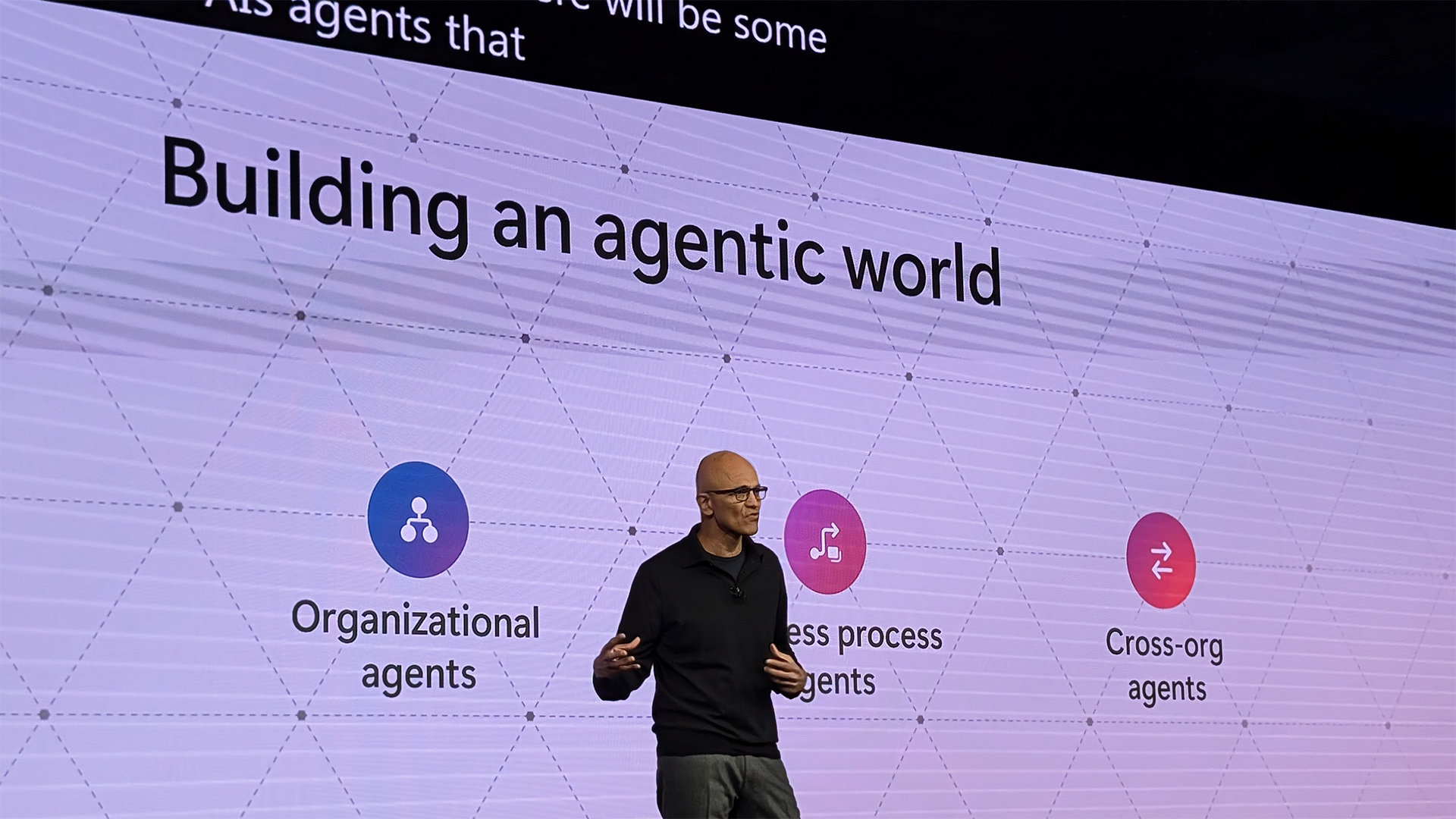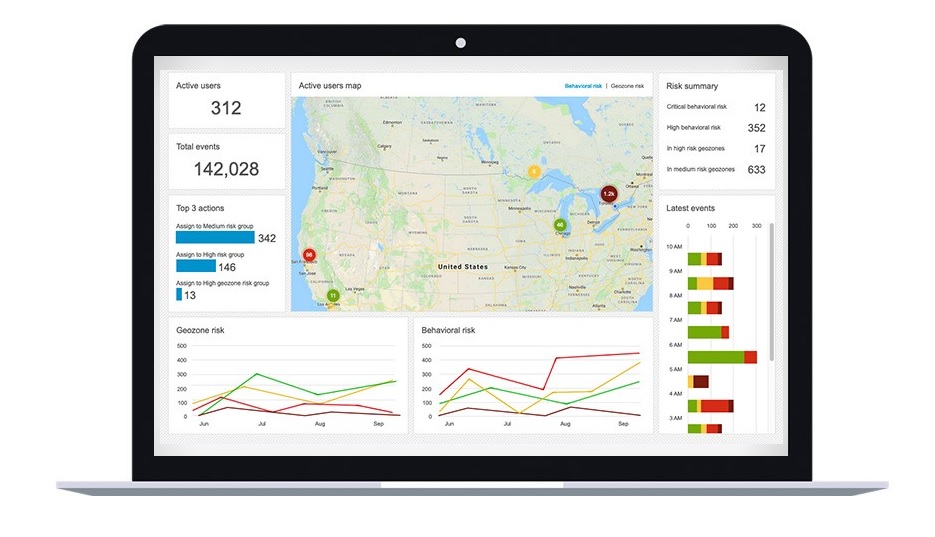RIM confirms Argon server release
Research in Motion has said its BlackBerry Enterprise Server 5.0 will be “easiest upgrade ever”.

Sign up today and you will receive a free copy of our Future Focus 2025 report - the leading guidance on AI, cybersecurity and other IT challenges as per 700+ senior executives
You are now subscribed
Your newsletter sign-up was successful
Research in Motion (RIM), the company behind the BlackBerry smartphone, has confirmed that it will ship version 5.0 of its BlackBerry Enterprise Server (BES) in the second quarter of this year.
The server connects corporate email accounts to BlackBerry devices. The latest version, code-named "Argon", has been in running internally at RIM for two years, and with selected business customers for a year.
Details of BES 5.0 first leaked out to BlackBerry user forums in December, but the developer has now confirmed key functions for the release. Primarily, new functions are aimed at improving the scalability, usability and resilience of BlackBerry deployments, according to RIM.
Key improvements include an entirely web-based administration application for BlackBerry devices, removing the need for companies to deploy either administration servers or put software on support staffs' desktops.
RIM also said that it has automated a large number of routine administration tasks, and changed policies so that BlackBerry devices can be updated and their operating system upgraded over the net, either over a cellular or a WiFi connection.
"The only reason you now need to connect a cable to a BlackBerry is to charge it," said Alan Panezic, vice president for product management at Research in Motion.
With BES 5.0, IT administrators can for example set a BlackBerry to update its OS at any time within a two-week window, with the user allowing the update at a time that suits them. However, if the update does not happen within the window, the BES will take over and force the update. BES 5.0 also allows companies to distribute applications to the BlackBerry over the air.
Sign up today and you will receive a free copy of our Future Focus 2025 report - the leading guidance on AI, cybersecurity and other IT challenges as per 700+ senior executives
Other improvements are aimed at improving the availability of large BlackBerry installations. IT departments can now manually "fail over" to a backup server, for example for upgrades and maintenance, or to deal with short-term spikes in usage.
High availability features are achieved in software, according to Panezic, without the need for any expensive hardware features or upgrades to the BES installation. Users should not notice if the system fails over during day to day operations, he said. The upgrade, he added, should be easier than any previous updates to BES.
"The focus is on a system that lets customers grow with confidence, rather than sexy new features for the end user," said Panezic. "We now have enterprises approaching 100,000 users and they depend on BlackBerry for mission-critical collaboration and for their business needs."
-
 Microsoft CEO Satya Nadella talks up sovereign cloud credentials as firm announces general availability for Azure Local Disconnected, new capabilities for Foundry Local
Microsoft CEO Satya Nadella talks up sovereign cloud credentials as firm announces general availability for Azure Local Disconnected, new capabilities for Foundry LocalNews As Microsoft hands more control to customers, Satya Nadella touts the tech giant’s growing sovereign ecosystem
-
 How to use cyber-deception in your security strategy
How to use cyber-deception in your security strategyIn-depth Cyber deception allows firms to play adversaries at their own game – but how is it achieved?
-
 Blackberry revenue falls by 4% as cyber security division takes hit
Blackberry revenue falls by 4% as cyber security division takes hitNews Despite this, the company’s Internet of Things (IoT) division increased its revenue by 28% as it attracted new customers from the automotive sector
-
 BlackBerry revival is officially dead as OnwardMobility shuts down
BlackBerry revival is officially dead as OnwardMobility shuts downNews The Texas-based startup is mysteriously shutting down and taking its ultra-secure 5G BlackBerry with it
-
 BlackBerry and AWS are developing a standardized vehicle data platform
BlackBerry and AWS are developing a standardized vehicle data platformNews Platform will give automakers a standardized way to process data from vehicle sensors in the cloud
-
 BlackBerry thwarts mobile phishing attacks with new AI tools
BlackBerry thwarts mobile phishing attacks with new AI toolsNews The company's Protect Mobile platform alerts users to potential malware before a link is clicked
-
 BlackBerry Persona Desktop delivers zero-trust security at the endpoint
BlackBerry Persona Desktop delivers zero-trust security at the endpointNews New security solution learns user behavior and can take action if there’s an abnormality
-
 A 5G BlackBerry phone with physical keyboard is coming in 2021
A 5G BlackBerry phone with physical keyboard is coming in 2021News The business phone to be resurrected with OnwardMobility and FIH Mobile planning a security-savvy enterprise handset
-
 The business smartphone is dead
The business smartphone is deadIn-depth BlackBerry’s demise signals the end of the business-first handset
-
 BlackBerry Key2 review: The best physical keyboard no one asked for
BlackBerry Key2 review: The best physical keyboard no one asked forReviews Despite the improvements, the flaws of BlackBerry’s Key range are still front and centre